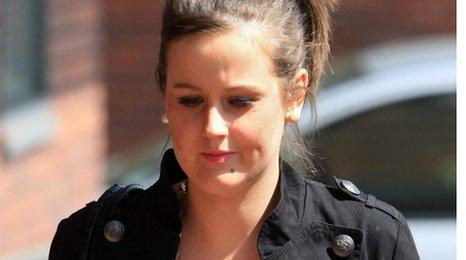Britain's 'binge drink capital' revisited
- Published
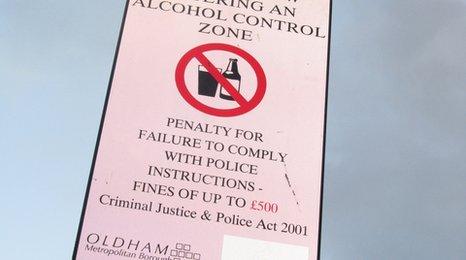
It's a Thursday night in Oldham. It's cold, it's wet and it's empty.
"It's like a ghost town," said 22-year-old Steph, outside the Old Mess House pub.
Eighteen months ago the main drinking area here, Yorkshire Street, had a reputation for cheap booze and violence.
The local MP called it the Wild West and national newspapers nicknamed it the "binge drink capital of Britain".
Under pressure, the council introduced a range of tough measures to try to clean up the area.
Other towns and cities were watching carefully - if the crackdown worked here maybe it could work elsewhere.
So 18 months later, what's happened to Oldham?
'Turning it around'
To start with some of the real cut-price booze offers you could find in 2009 have vanished.
The council gave bars a choice: either sell booze above a minimum price of 75p a unit - about £1.88 for a pint - or pay extra policing costs and make your customers queue one at a time in "post office-style" lines.
Unsurprisingly most bars have chosen to scrap the cheap deals.
The council says the measures, which also included more patrols and taxi marshals, are paying off.
"I would say we are now on the point of turning it around," said Rod Blyth, the man at Oldham council responsible for bars.
Police figures obtained by Newsbeat seem to back that up. Violent crime has fallen from 24 incidents a month in 2008 to 18 in 2010.
'Unfair'
For bar owners though it's not that simple.
"It's got better regarding trouble," said Jane Ganley who runs Kiss on Yorkshire Street. "But businesses are dying really, really fast."
Bar owners like Jane support the council crackdown but say the crime rate is also falling because customers have less money to spend.
"It's definitely less busy which is a shame," agreed Jordan Dalzell, the manager of the Old Bank.
"We have to serve at 75p a unit but the supermarkets can get away with selling at 15p a unit.
"People just get drunk at home first and then come out at midnight.
"It doesn't make us any money but we still have to deal with customers who have been drinking at home," he said.
At the local supermarket you can get beer at 22p a unit, vodka at 32p and cider at 16p.
Councillor Rod Blyth accepts the current situation is "unfair".
"Bars are getting a bad name because of what they are doing," he said.
Big supermarkets reject that charge. They say it's unreasonable to compare bar and shop prices - just like comparing the price of a steak in a restaurant with a steak in the butchers.
Price of booze
Either way the very cheapest supermarket deals are to disappear soon.
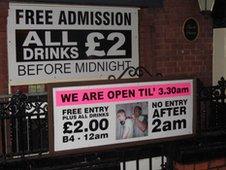
Cheap booze deals still exist but bars have been encouraged to scrap them
Under government plans for England and Wales shops will have to sell above the rate of duty plus VAT.
In practice that means at least 38p for a can of weak lager and £10.71 for a bottle of vodka.
Bars and clubs argue that isn't strict enough and Rod Blyth agrees.
"If we are going to do something on pricing I think we have to go much further," he said.
Councils in Greater Manchester now plan to introduce a 50p per unit minimum price on all drinks sold across the city and the suburbs.
Once again, other towns and cities across the UK will be watching closely to see how that works.
- Published18 July 2013
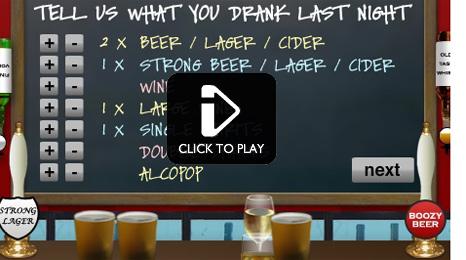
- Published26 January 2011
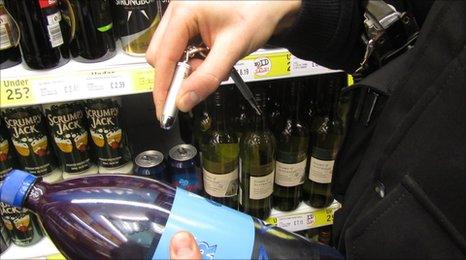
- Published25 January 2011
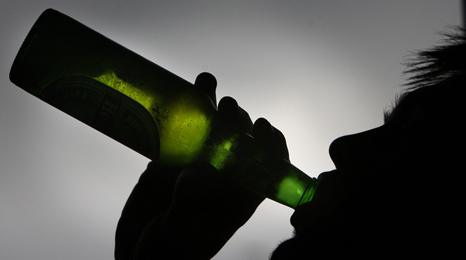
- Published25 May 2010
